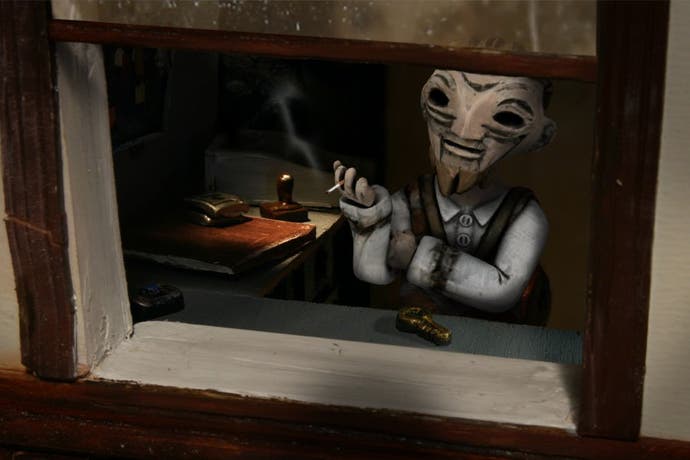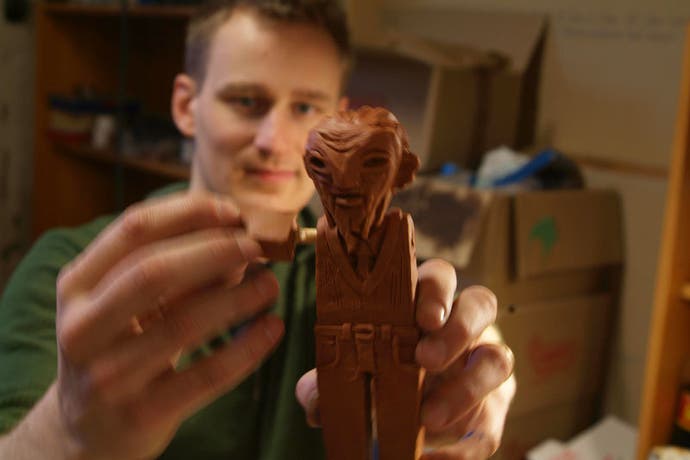The Dream Machine
"This industry really enjoys beating things to a pulp."
Yes, very much so. Since we're releasing the game online and are producing it on an extremely limited budget, making elaborate cut-scenes would be time consuming, expensive and cause the files to become very bloated. To me, a dialogue exchange - if done right - can be far more engaging than a cut-scene. The challenge is of course to give the players interesting choices and reactions along the way so they don't feel they're just being spoon-fed long expository rants.
It's been said before, but I think a large contributing factor to why adventure games went out of style was because the puzzles just got too obscure and self-serving. Once unintelligible puzzles were established as the genre norm, it was only a matter of time before people would just give up and stop playing.

Balancing difficulty is possibly the hardest thing about designing adventure games. You want the game to be challenging, but you don't want people resorting to walkthroughs. As a developer, the best way of guarding yourself against overly difficult puzzles is through testing, and since we're releasing online it's very easy to build in a system that sends completion and interaction information discretely in the background.
If a puzzle causes 30 per cent of our players to drop out - as was the case with the first iteration of the circuit board puzzle - we go in and tweak the design. Also, if enough people try an inventory combination that we never considered, we go in and add a proper response to that. I always thought the default, "That doesn't seem to work," response made the player character seem strangely robotic and broke my suspension of disbelief. It's the adventure game equivalent of walking into an invisible wall.
This is the first game where we've actively used player metrics to improve the design. I look forward to seeing where we can take this player/designer collaboration in future games.
Right now we're only considering releasing the game online, episodically, but if there's enough interest, we'll certainly consider an offline version or even releasing on other platforms.

I'm very fond of the caretaker, Mr Morton. He's an older, shifty fellow, who basically hasn't left the building since the 1970s. He enjoys smoking and listening to old records on his Victrola. He also has something to hide.
As for game moments, I like that one of the early puzzles involves eating breakfast with your wife. It's a very simple scene, but still reveals quite a lot about who these two people are. I really admire what David Cage is trying to do inserting moments of the mundane in his games, to establish a mood and character. Making those moments rewarding from both a gameplay perspective and a narrative perspective is very hard indeed. It's always heartwarming to see something subtle being attempted in games.
A demo of The Dream Machine is available now at the official site, where you can also sign up to beta trial the very lovely first chapter.
